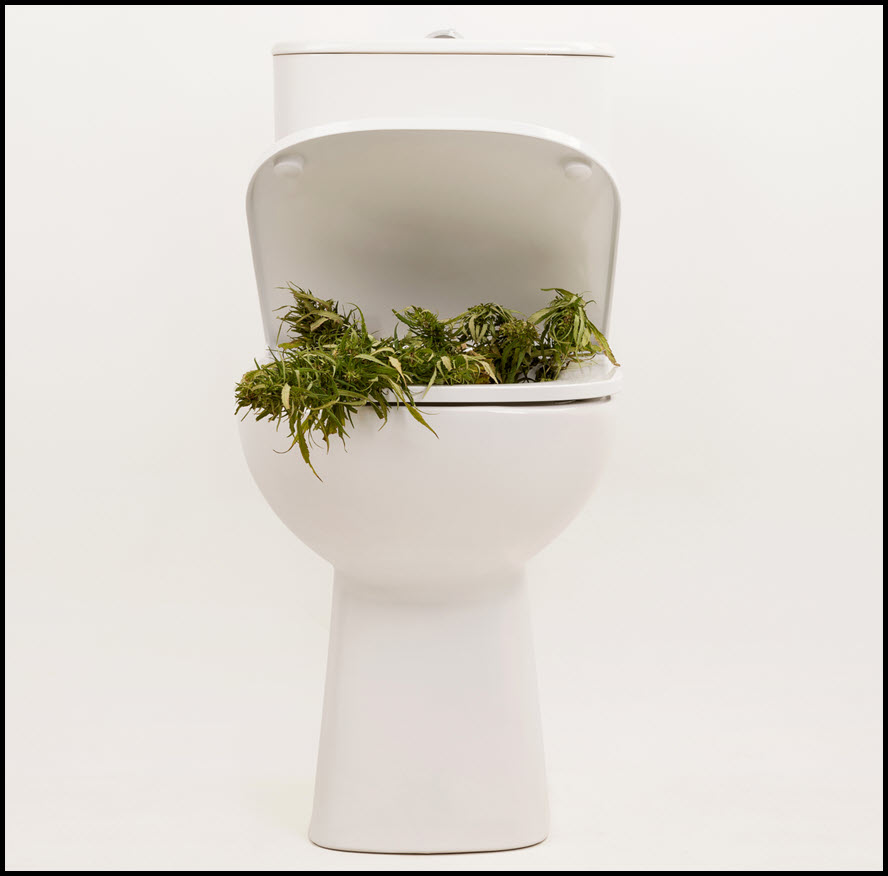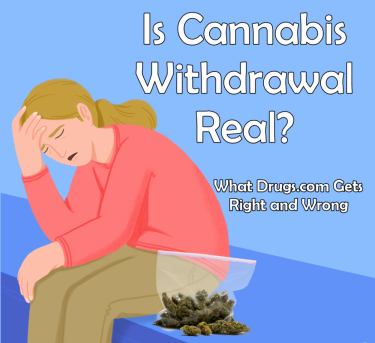
Quit Weed Cold Turkey – What Are The Side Effects Of Quitting Cannabis? (timeline version)
According to the Centers for Disease Control and Prevention (CDC), marijuana, commonly known as cannabis or even more commonly weed, is the most widely used illicit drug in the United States.
In recent years, more and more states have legalized the medicinal and recreational use of weed. Still, legitimacy doesn’t appear to have significantly increased cannabis use, according to a 2018 Washington state study. That being said, cannabis use has received a lot of attention.
There are many misconceptions about whether people can become addicted to cannabis. In fact, it is conceivable that with frequent use one becomes addicted or even dependent on cannabis. Sleep is one of the main issues with users reporting that they have moved away from using cannabis to sleep and then stopped using the plant.
Over 300,000 people begin treatment for cannabis use disorders in the United States each year. According to a 2012 study, 30.6 percent of cannabis users had a cannabis use disorder between 2012 and 2013.
This article examines why and how a person may experience cannabis withdrawal/cessation symptoms, and the timing.
What exactly is cannabis withdrawal?
Cannabis withdrawal (or giving up marijuana) is when specific negative symptoms, both psychological and physical, appear when a person who regularly smokes weed stops smoking it.
There are a lot of misconceptions when it comes to cannabis use, and one of the biggest is the belief that it is impossible to become dependent on cannabis; that you can stop taking it at any time. However, this is not always the case.
Whether you use cannabis medicinally or recreationally, it is possible to become dependent on cannabis with regular use. In fact, according to the CDC (Centers for Disease Control and Prevention), one in ten Americans who use cannabis becomes addicted.
If your cannabis use is limited – ie from time to time as opposed to regularly – you are less likely to experience any marijuana cessation symptoms. However, if you use cannabis regularly and want to quit, here is what to expect when you stop using cannabis.
withdrawal symptoms
Cannabis withdrawal symptoms can include sleep deprivation, irritability, and restlessness. Individuals who use cannabis regularly and suddenly stop may experience some withdrawal symptoms. Although many people use cannabis without experiencing withdrawal symptoms, regular cannabis use can turn into a cannabis use disorder. In severe cases, this can become an addiction.
Professionals define addiction as the continued use of cannabis, regardless of the adverse effects it has on a person’s life, such as: B. Problems with their work, their relationships, or their family. Cannabis withdrawal symptoms peak within the first week of quitting and can last up to two weeks.
Symptoms of cannabis withdrawal can include:
restlessness
Decreased appetite
irritability
nausea
stomach pain
craving for weed
Difficulty sleeping
Some studies suggest that women may experience a greater number of withdrawal symptoms with greater severity compared to men. However, more research is needed.
Why Does Cannabis Cause Withdrawal Symptoms?
Cannabis is the name for the dried extracts of the Cannabis sativa plant. The plant possesses terpenes and delta-9-tetrahydrocannabinol (THC), with THC contributing to the primary psychoactive effects associated with cannabis use. The potency of marijuana is determined by THC, while terpenes determine its smell and taste. The effect of marijuana on the brain is proportional to the amount of THC it contains.
Frequent use of cannabis means that the body and brain become accustomed to a regular intake of THC. Once there is no more supply, the body needs some time to adjust to the fact that it is no longer there. This leads to unpleasant physical and mental withdrawal symptoms.
Once the body and brain adjust to not having THC in the system, the physical withdrawal symptoms stop. However, some people may still have mental cravings for cannabis for some time. Based on samples of confiscated cannabis, the herb’s potency has steadily increased over the years. From about 3.8 percent in the 1990s, THC levels have increased to about 12.2 percent in 2014. This shows that the current effects of cannabis, including withdrawal symptoms, can be more severe compared to its effects in decades past.
Schedule of Withdrawal
After quitting cannabis, it can take about a month for the brain to return to normal functioning. The mood swings and physical withdrawal pain peak in the first week after quitting smoking and can last up to two weeks. Although the physical effects of quitting cannabis end after the drug leaves a person’s system, the mental and psychological symptoms can last longer. Within four weeks of stopping the drugs, studies state that brain receptors known as cannabinoid-1 receptors return to normal after two days without cannabis. They regain normal function within four weeks of stopping the medication.
Some people who have stopped using marijuana may experience cravings, particularly in situations and circumstances where they have previously been exposed to it.
bottom line
According to the CDC, cannabis use has been linked to a number of adverse health effects. Memory problems, an increased risk of stroke and heart disease, lung problems caused by marijuana use, and psychological symptoms such as etymology and psychosis are just a few examples. According to the National Institute on Drug Abuse, there is strong evidence in both animal and human research that early life marijuana exposure can lead to cognitive deficits such as memory and learning problems, as well as altered reward systems in the brain.
While the CDC and NIDA have been viewed as highly anti-cannabis in their publications and brochures, more and more positive scientific studies are coming out of the plant as access and legalization increases across North America.
Some people can become addicted or even dependent on cannabis. These people may experience withdrawal symptoms when they stop taking the medicine. A person may experience mood swings or other problems, or sleep poorly. Resources are available for those looking to quit cannabis. If you want to cut back on marijuana use, do so gradually to avoid withdrawal symptoms. A few healthy lifestyle changes can also help you make the transition smoother.
FOR MORE ABOUT QUITTING WEED, READ THIS…

CANNABIS WITHDRAWAL AND IS IT REAL OR IMAGINED?
OR..

DO 25% OF MMJ PATIENTS SUFFER WITHDRAWAL IF THEY STOP USING CANNABIS?

Post a comment: